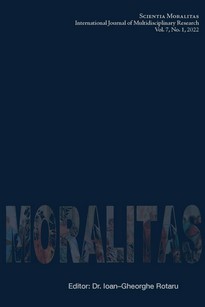Christianity and Anthropocentrism within the Poems of Oodgeroo Noonuccal
Christianity and Anthropocentrism within the Poems of Oodgeroo Noonuccal
Author(s): Dipanwita PALSubject(s): Christian Theology and Religion, Poetry, Other Language Literature, Human Ecology, Theory of Literature
Published by: Scientia Moralitas Research Institute
Keywords: Anthropocentrism; Christianity; ecocentrism; ecological crisis;
Summary/Abstract: Lynn White, Jr. identifies Christianity as anthropocentric in nature. Before him, Max Weber, a German sociologist, tried to indicate a similar kind of interpretation of Judaism and Christianity. For him, the religion of the Bible was responsible for the ripping off the earth ‘from any religious, numen, significance—and holiness’ (Kunzmann 1). Carl Amery supported White’s view in The End of Providence: The Merciless Consequence of Christinity (1972). Later, Betsy S. Hilbert’s re-reading of Lynn White Jr.’s above discussed essay “The Historical Roots of Our Ecological Crisis” in her essay “Beyond “Thou Shalt Not”: An Ecocritic Reads Deuteronomy” gives the issue a new dimension. She tries to find out White’s design behind proposing St Francis of Assisi as ‘a patron saint for ecologists’. Throughout the essay, Hilbert gives ample examples from the Bible to illuminate our apprehension of human relations to the environment. Critics like Betsy say that Christianity has been misinterpreted by earlier critics as rendering humans the power of ‘domination of nature’. But a proper study of the Bible shows God’s original design in endowing special power to humans: to take the responsibility of showing respect for the laws of nature. This paper intends to probe further into the issue and find out the possibilities of Christianity spreading ecocentrism.
Journal: SCIENTIA MORALITAS - International Journal of Multidisciplinary Research
- Issue Year: 7/2022
- Issue No: 1
- Page Range: 128-137
- Page Count: 10
- Language: English

